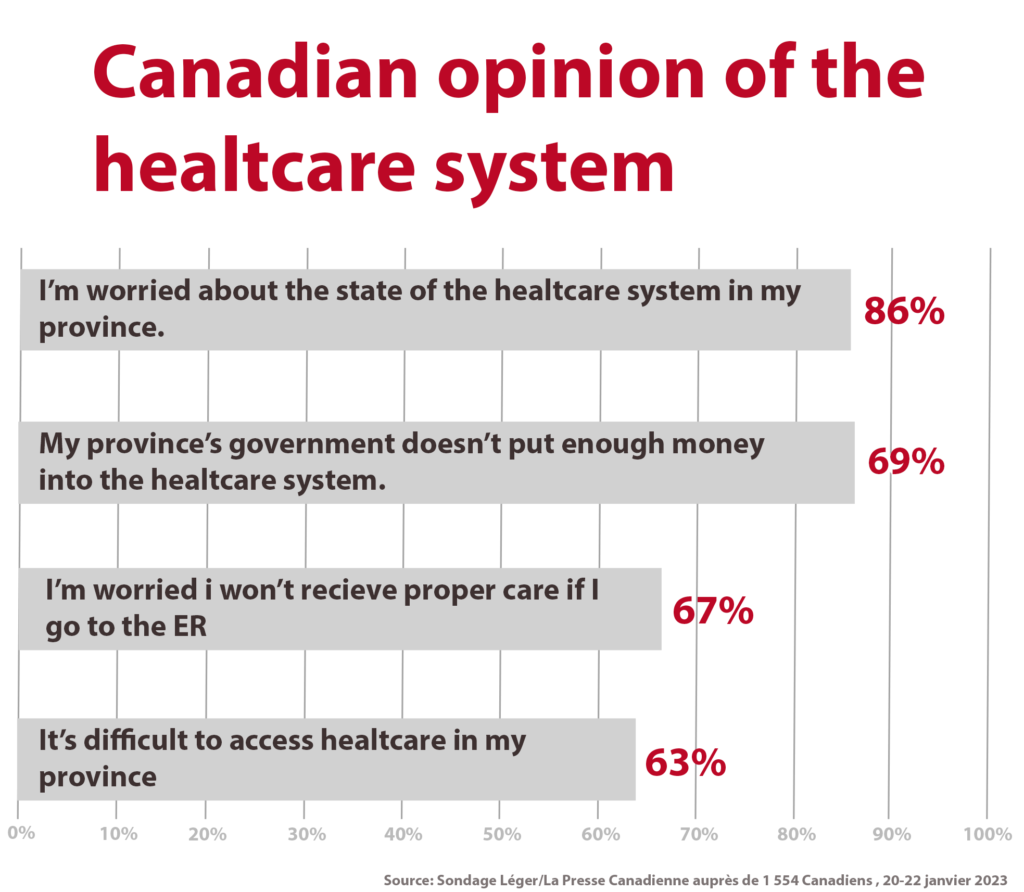On February 13, Canada's provinces accepted the federal government's offer of budget transfers for health care. The governments agreed to a contribution of $4.6 billion per year from the federal government for a period of 10 years. This is one-sixth of what was expected by the 13 premiers, who were asking for an additional $28 billion per year.
The amount paid by Ottawa will be increased by 5% per year. The annual increase was previously 6%, but was reduced to 3% in 2017 by the Liberal government, causing a significant impact on the amount of transfers. Had it been maintained, the funding for the current year would have been $51.21 billion rather than $45.2 billion, a difference of $6 billion.
The provinces accepted the offer, however, noting that Ottawa will not dictate to the provinces how they must spend the money. "The good news is that there are no strings attached," said Quebec Premier François Legault. The agreement requires the provinces to spend only 58% of the new funding on the health care system.
There is no guarantee that the remaining 42% will be used to improve the most serious flaws in the health care system, or even that it will be spent within its budget. The health budget of the provinces decreased between 2020 and 2023, from 204.8 million to 201.2 million. In 2021, the provinces have outlined their demands for health transfers in a joint document, in which they reveal that they do not plan to use the $28 billion requested to increase their health spending.
Some provinces boast large surpluses. For example, Ontario had a $2 billion surplus in 2022, Saskatchewan had a $1 billion surplus and Quebec has a projected $2.2 billion surplus in 2023. Despite their obvious financial means to improve their health care system, they appear to want to use Ottawa's money to increase their existing budget surplus.
A Leger poll conducted in January revealed that 69% of Canadians said they believe their provincial government is not putting enough money into the health care system. An average of 85% of Canadians are concerned about the state of the health care system in their province. This figure rises to 94% in the Maritime provinces and 89% in Quebec.



